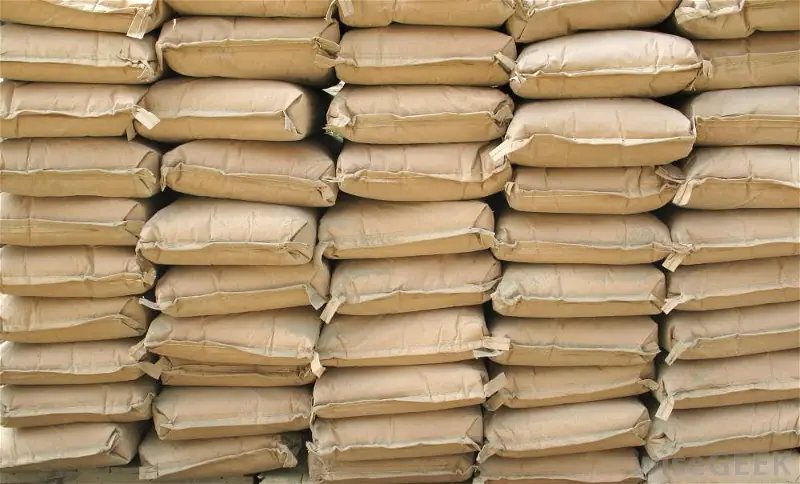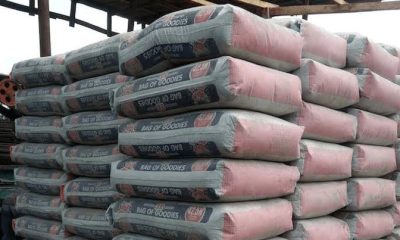Business
Price Of Cement: Stakeholders Calls For More Maufacturers In Nigeria

Industry stakeholders are advocating for an increase in the number of cement manufacturers in Nigeria to enhance affordability, boost annual production, and meet the rising demand fueled by significant government infrastructure projects.
The 2024 budget has allocated N1.32 trillion to infrastructure, representing 5.0 percent of the total Federal Government budget, signalling a need for increased cement production capacity.
Currently, the Nigerian cement market is dominated by three major players: Dangote Cement Plc, BUA Cement Plc, and Lafarge Africa Plc, serving a population of over 200 million.
Despite the presence of these indigenous giants, the cement prices have surged from ₦5,000 in December 2023 to around N10,000, later settling at approximately ₦7,000 per bag.
The House of Representatives has recently scrutinized these companies over cement price spikes, labelling the increases as arbitrary.
According to Leadership, the CEO of the Centre for the Promotion of Private Enterprise (CPPE), Dr. Muda Yusuf, highlighted the challenges faced by manufacturers, including macroeconomic and structural headwinds, and noted the departure or downsizing of many foreign firms from the Nigerian manufacturing sector.
He said, “Cement production is highly energy intensive with gas being the major energy source. Gas is priced in dollars for manufacturers in the country, and they sell their products in naira. This is a major predicament for domestic manufacturers.
“The implication of that for production cost is better imagined, especially in the light of the plunge in the value of the naira.
“The logistics cost of cement distribution is humongous, given the escalating cost of diesel and the state of the roads. Exchange rate depreciation is taking a huge toll on the cost of imported components of production inputs, including spare parts and machineries.
“Cost of fund is mounting as the CBN continues its aggressive monetary policy tightening. Latest headline inflation for February was 31.7 per cent. All these are variables which are not within the control of the manufacturers and which have profound impact on production and operating cost.”
He noted that, “admittedly, the risk of profiteering increases with monopoly powers in any economy and in any sector. This risk exists in the Nigeria cement industry as there are few dominant players. But this is a regulatory issue that could be addressed within the framework of the Federal Protection and Competition Act of 2018.”
Analysts at CardinalStone Research emphasised that “despite the impressive growth, cement companies in Nigeria face several challenges. One of the major obstacles is inadequate infrastructure, particularly in terms of transportation and distribution networks.
“This makes it difficult for cement manufacturers to supply their products efficiently across the country. Furthermore, high production costs, regulatory issues, and fluctuations in the foreign exchange market also pose significant challenges to the industry.
“The future of the cement business in Nigeria appears promising. The Nigerian government’s focus on infrastructure development, affordable housing schemes, and urbanization drive will continue to fuel demand for cement. Additionally, ongoing reforms aimed at improving the business environment will attract more investments into the sector. With the right policies and investments in infrastructure, Nigeria has the potential to become a major exporter of cement in the global market.”


